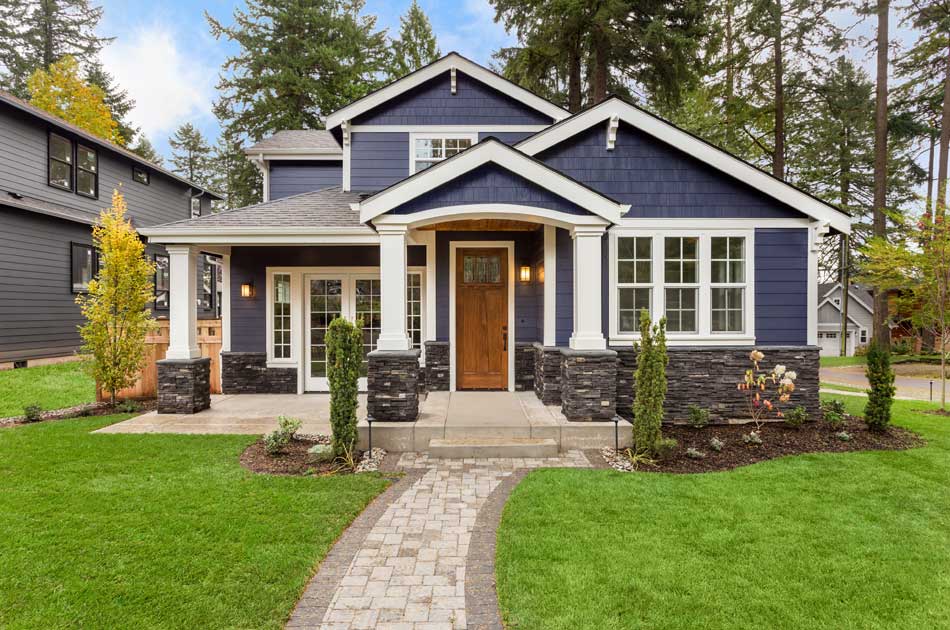10 Home Improvement Tips to Increase Resale Value

Selling your home can be a big and stressful undertaking. Whether you are looking to do so now or in the future, it is important that you get the most value out of your home. Having a high resale value means you'll have more money when it's time for something new.
So, if you're interested in increasing your home's value, here are 10 home improvement tips you can follow.
1. Focus on Curb Appeal
Your home will only get one chance at a first impression. Curb appeal is a big factor in a home's resale value, and there are many ways to improve it.
If you still have time before you want to sell, considering planting some trees. They'll need time to mature and grow, but once you're ready, they can really improve the look of your home's exterior.
Additionally, other plants can also make a big impact no matter your resale timeline. The best plants are ones that are low maintenance and drought-tolerant so that they will be presentable all the time.
Finally, take regular care of your lawn keep it clean, presentable, and weed-free. A neat yard can really help your home stand out.
For non-plant related curb appeal tips, cleaning your gutters, stowing garden tools, cleaning windows, adding a new coat of paint to your siding or door, replace missing shingles, getting new house numbers, and even just washing the siding and sidewalks can all have a big impact.
2. Bigger Is Better
Create space in your home to make it feel and appear larger and more welcoming. You can do this by replacing heavy drapes with shutters to allow more light in or using mirrors to reflect light and brighten up your space.
Also, keep the furniture and knick-knacks to a minimum. The more stuff in a room, the more cramped it will feel.
3. Lighting Is Key
Lighting makes a huge difference in your home's value—and not just the amount of light, but the type of light as well.
Having plenty of easily accessible and functional windows allows you to increase the amount of natural light. Additionally, dimmer switches and motion detector lights in the home can help create a warm and welcoming atmosphere.
4. Evaluate Flooring
One important home improvement tip is to make sure you don't forget about what you're walking on. Floors take a lot of wear and tear and happen to be one of the first things a person notices when they walk inside. Shabby carpets or scratched hardwood can make your home appear messy and quickly turn people away.
Try to free your home of worn wall-to-wall carpeting and fix squeaky floorboards or broken tiles. Replacing old and damaged flooring or rugs where you can will help your home feel more valuable the second you walk inside.
5. Update Ceilings
Don't forget to look up! Popcorn ceilings are a thing of the past and can quickly make your house feel outdated. They also run the risk of containing asbestos, which can scare buyers away. Remove old ceilings and go for a softer texture on your ceilings to open up your rooms.
6. Don't Forget Cosmetic Updates
Sometimes all your home needs to make it feel shiny and new are a few simple cosmetic updates.
A fresh coat of paint will easily cover up chips and crayon drawings from the kids. Try to stick to neutral colors—your son's bright orange room could prevent potential buyers from picturing themselves in the space. As an added bonus, a neutral color will quickly brighten up any room.
7. Save Money with Energy Efficiency
People are always looking to cut costs and save money wherever they can. An energy-efficient home can lower your monthly bills, saving you a lot of money and impressing future potential buyers.
Replace old heating and air systems with newer and more efficient options. Solar-powered systems are also a valuable option. These changes might seem expensive now, but they can save you money for years to come.
8. Keep Up with Maintenance
Regularly keep up with all the little things that need fixing around your home, like a squeaky door or a garden full of weeds. These items might seem small and unnoticeable individually, but they can quickly team up to make your home appear broken and neglected.
Also, don't forget about the bigger and hidden fixes that drastically decrease your home's value, such as insulation, plumbing, and leaking roofs.
9. Cleaner Is Happier
When you're ready to sell your home, be sure to keep it clean and organized. Messes and clutter will make your home less attractive to potential buyers, decreasing what they're willing to pay for it. A clean home is more inviting and can make a surprising difference in your home's resale value.
10. Find Inspiration
If you aren't sure where to start when working on your home's resale value, don't be afraid to get some help!
Invite a realtor to evaluate your home and show you which areas need the most attention. Or contact an interior decorator for ideas how how you can make your home more beautiful than it already is. Even just browsing through magazines can be a great source of ideas and inspiration.
The Bottom Line
Increasing your home's resale value is easier than you think! There are lots of projects, whether small or large, that you can tackle to get more out of your investment. These projects can help whether plan to sell now or later.
Found a helpful design tip or an easy repair hack? Let us know in the comments below!
